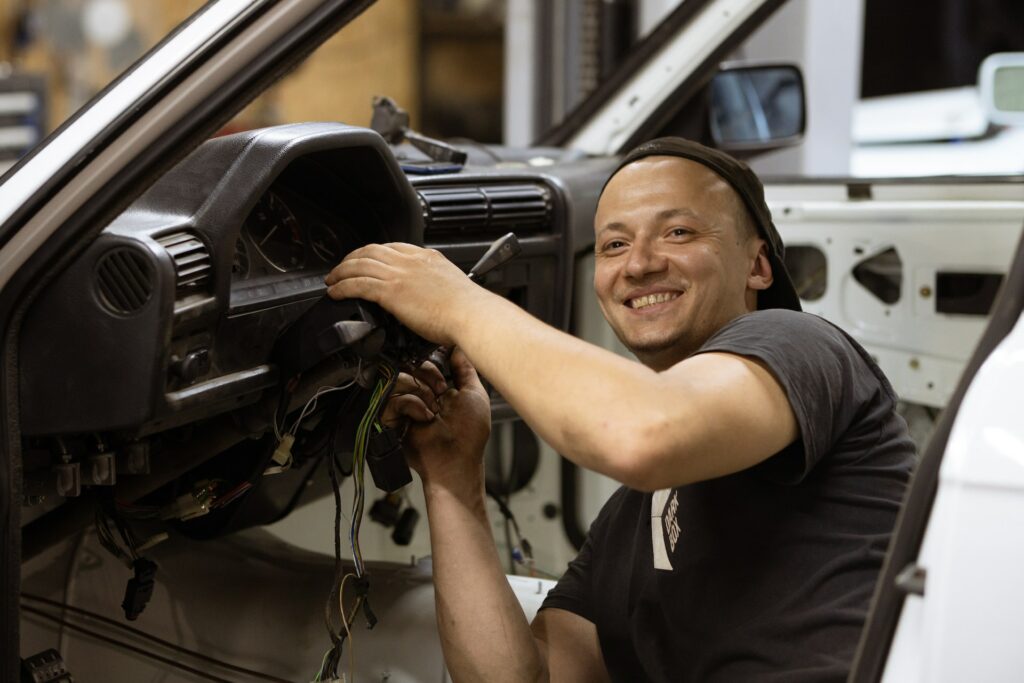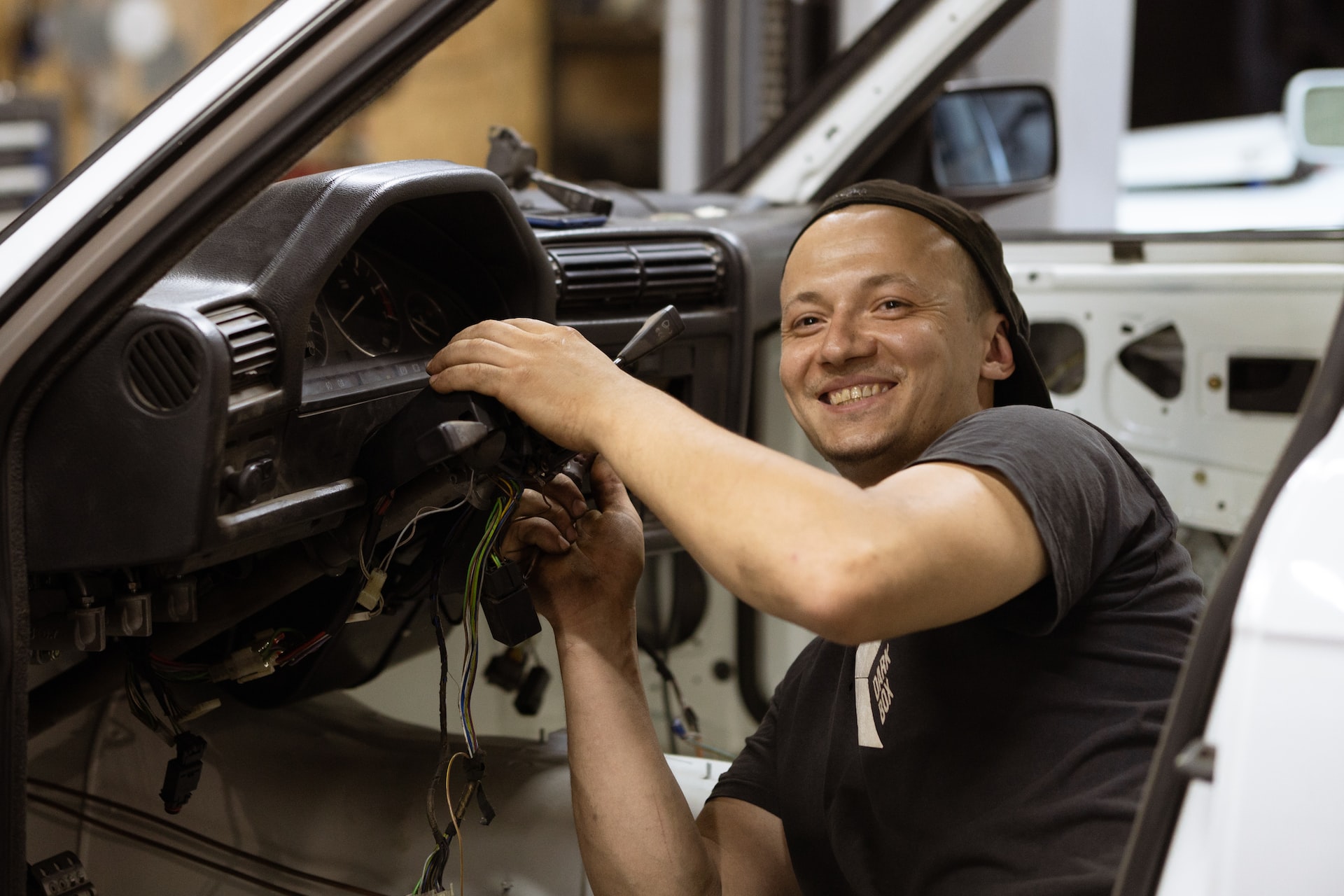If you want to keep your recovery running strong, you need to take the same approach a mechanic would take when tuning up a car.

If you want to keep your recovery running strong, you need to take the same approach a mechanic would take when tuning up a car.
If you don’t fix the small leaks, rattles, and squeaks when they pop up, you’re going to find yourself broken down somewhere down the road. Remember that a tiny drip becomes a drop. A drop becomes a tiny puddle, and before you know it you’ll be spewing oil everywhere wondering what happened.
Catch the small problems in your recovery when they’re small. Don’t put things off.
Remember: Diagnose, Repair, Maintain.
All this is pretty simple.
Within this article, you will find a 10 point recovery checklist which will be your guide to keep your recovery running strong and out of the repair shop.
Would you leave for a cross country road trip without checking your fluids, tire pressure and lights?
I didn’t think so.
Most people put more time and energy into maintaining their vehicles than they do maintaining their lives. Don’t do this.
Do this instead…
1. MAKE SURE YOU ARE BEING HONEST WITH YOURSELF AND OTHERS AT ALL TIMES. NO EXCEPTIONS.
If you are not willing to be honest with yourself, there is no way you’re going to be honest with anyone else.
Lying to yourself and pretending that you’re okay when you are not will put you back in the repair shop quickly and you won’t see the breakdown coming until it’s too late.
2. REGULARLY ATTEND SUPPORT MEETINGS TO KEEP YOURSELF FUELED.
Thinking that you could drive from Michigan to California on one tank of gas is a pipedream. You know those places that sell gas? They’re everywhere. They need to be everywhere.
Cars, trucks, and motorcycles need fuel to run. They need to be filled up often to keep running, and so do you. Meetings and support groups are your fuel. Fail to stop for fuel often and you’re going to stall out and be stranded.
3. FIX PROBLEMS WHILE THEY ARE SMALL.
Don’t be that person who neglects an oil drip, cracked radiator hose, or bald tire.
Remember that an oil drip is not going to fix itself. It will only get worse. Don’t think that duct taping your radiator hose is going to fix it. It won’t – it will burst eventually. A bald tire can be deadly if not changed immediately. Pull the wheel off and change the tire.
If you are encountering small problems in your recovery, remember the sequence: diagnose, repair, maintain.
4. WASH, WAX, INSPECT, AND REPEAT.
Most people will spend a load of money on their car, truck or motorcycle. They will only buy premium fuel, synthetic oils and brand name tires.
That’s all find and dandy, but those same guys won’t spend more than a few bucks on buying healthy food, a gym membership, or going to the doctor. Take care of your own body. You’ve busted your behind to get sober, so why would you skimp on the vehicle that’s going to take you through life?
Take care of your health. Honor what God has given you. Get some exercise. Stop eating garbage. Quit smoking already. Get plenty of sleep. Learn to rest and relax.
Would you put used oil and fouled out spark plugs in your prized possession? I didn’t think you would, so stop treating your body like it will run forever. It won’t. Take care of it and it will take care of you.
5. STAY IN YOUR OWN LANE.
There is a passing lane, a driving lane and a slow lane. If you are really trying your best to live a life based in recovery, you have no business being in the fast lane. The fast lane is for passing, not driving.
There are always those jackasses that are constantly hurrying to get somewhere that will drive in the fast lane. THAT SHOULD NOT BE YOU.
It’s okay to pass, but remember that recovery is a long-term deal. It is the most epic adventure you will ever embark on, so get used to going slow and pacing yourself.
6. REALIZE THAT YOU CAN’T FIX EVERYTHING. SOME THINGS WILL BREAK AND STAY BROKEN FOR A WHILE, AND THAT’S FINE.
While it’s a really good idea to fix problems while they’re still small, some things are not for you to fix.
You may not have the knowledge, the right tools or be ready to tackle repairing certain parts of your life. Don’t stress.
You need to learn how to change your own oil before you can even begin learning how to overhaul an engine, so don’t take on problems that are not yours to fix in the first place. If you’re trying to rebuild your relationships, finances, health or employment, remember that you need to learn how to manage what’s in front of you before you are given more to manage and repair.
Why don’t they just let a kid drive when they turn 16? They can’t handle it. it would be a complete disaster. A kid learns to drive very slowly and deliberately in driver’s education with the instructor at the helm; ready to react if junior makes a dumb move. You are still learning to drive.
Chill out and enjoy the process.
7. FOLLOW THE INSTRUCTIONS AT ALL TIMES.
There are auto repair manuals for a reason. Don’t think that you can do things your own way and be successful. You can’t.
When it comes to maintaining your recovery, you’ve got to do what the pros do (people that have been in the program longer than you): Listen, learn, pray, apply, and repeat.
The “instructions” to living a healthy and balanced life in recovery can be found at various support meetings and in various books that are read in these support meetings.
8. MAINTAIN CONTACT WITH THE HEAD MECHANIC AT ALL TIMES.
No one knows how to fix everything. You might have some tools, some experience and fixed many of your own problems, but the HEAD MECHANIC is the ULTIMATE repairman. You can call your Head Mechanic whatever you want.
Make sure you consult Him on a regular basis. He’s already fixed plenty of other cars and knows exactly what’s wrong with yours. Trust Him to give you the tools to fix your own problems when you’re ready, or watch Him work his magic and fix them for you.
9. EXPECT BREAKDOWNS AND DETOURS.
I don’t care how well you’ve maintained your vehicle…THINGS STILL BREAK.
Things do not always work out how they are supposed to. Plans change. Potholes are everywhere. Roads are closed, tires go flat, and rocks get spit up by 18-wheelers and chip your paint. It’s not your job to control and micro-manage every step of your journey, nor is it your job to predict everything that might go wrong. That’s impossible.
If things go wrong – and they will go wrong – adapt, reset, repair and get back on the road. If that road is closed, ask for directions.
10. KEEP A MAINTENANCE CHECK LIST. DO THIS DAILY.
You need to do this. You’ve got to keep track of what’s running well in your life, what’s starting to run a little rich or lean, hot or cold, what’s leaking and what’s not, and keep track of these things.
You will not know what’s wrong and what needs to be fixed or maintained if you skip this step. Just do it.
Peace,
Paul Wolanin
Paul is a therapist at Ten16’s residential program, and a regular contributor to the blog.
 Contact
Contact FAQs
FAQs




